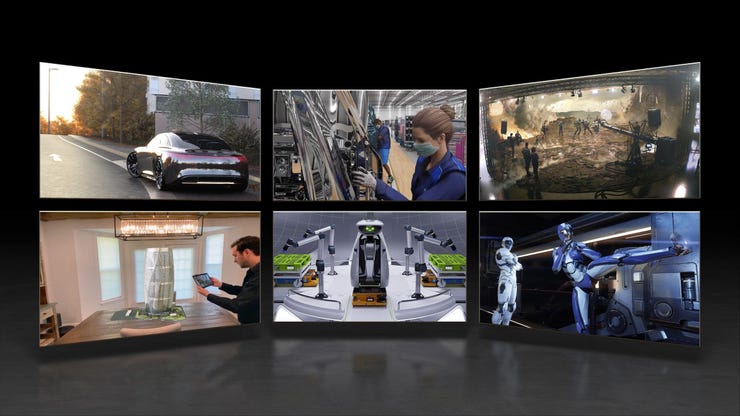From Nvidia to IKEA: Here's who's joining the Metaverse Standards Forum


Nvidia is one of the founding members of the Metaverse Standards Forum
The metaverse is a fresh enough concept that it can mean different things to different people. Some people think of the metaverse as a space for digital twins, for instance, while others associate it with more immersive gaming. One thing is certain, however: Major companies already have invested huge sums to establish their place in the metaverse (just check out the below links).
- Qualcomm launches $100m metaverse fund as it works with Square Enix on XR gaming
- Microsoft readies its latest 'industrial metaverse' pitch
- Sony and Lego's parent company invest $2 billion in Epic Games to help build the metaverse
- Meta scraps this year's F8 developer conference to focus on building metaverse
To ensure these investments pay off, several major organizations have signed on as founding members of the Metaverse Standards Forum -- a venue for companies and standards organizations that want to influence the basic standards that will serve as the foundations for an open metaverse.
"We are essentially creating a new interface to the internet that feels more like the interface we have to the world that we've always known around us," Rev Lebaredian, Nvidia's VP of Omniverse Engineering & Simulation Technology, explained to ZDNet. "A 3D world that like the one we inhabit."
The forum, he said, "will essentially open [the metaverse] up for more uses and make it more natural for more people to participate and use to do all sorts of things."
The list of founding members includes several major tech companies, such as Meta, Nvidia, Microsoft, Autodesk, Adobe, Alibaba, Epic Games, Huawei, Qualcomm and Sony. It also includes retail giants IKEA and Wayfair. The forum currently includes organizations like the Spatial Web Foundation, Web3D Consortium, Khronos Group, and World Wide Web Consortium.
What kind of standards are needed in the metaverse? To answer that question, members of the forum are looking back to the foundations of the Web.
"The early internet, before the web, had a very abstract and simple interface," Lebaredian said. "It was just text. You used to have to dial in on a modem and you would just type in commands in a shell. ... It was limited to essentially computer scientists. When we introduced the web, we opened up the web to a large number of people, and now to billions of people, because they can interface in a more natural way with images, text, and video."
One key standard that opened up the web was HTML, the markup language that gave people the ability to add text and images with hyperlinks to webpages. It took about 20 years to develop HTML5, allowing for more video and feature-rich applications on the web. Developing mature standards for the metaverse could take just as long, Lebaredian said.
"So we should start as soon as possible," he said.
The forum is open to any organization at no cost. It aims to focus on pragmatic, action-based projects like implementation prototyping, hackathons, plugfests and open-source tooling to facilitate the testing and adoption of metaverse standards.
Lebaredian said the forum should ideally include companies from all verticals, including manufacturing, AEC (architecture, engineering, construction) and healthcare. IKEA already has made deep investments in 3D technologies, Lebaredian said, demonstrating how retailers will make use of the metaverse. Most of their catalog images, for instance, are all digitally rendered.
"You can imagine just about every major industry benefiting from this, just like they did from the web," Lebaredian said.